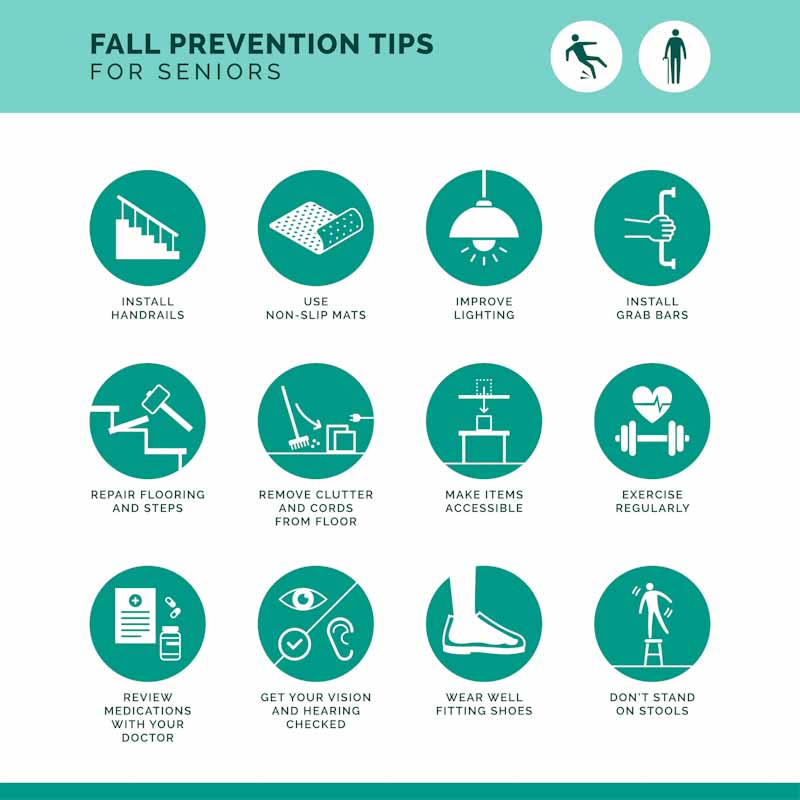Fall Prevention Week, observed every year during this week in September, serves as a crucial reminder to review home safety and well-being. As we age, our risk of falling increases due to changes in balance, vision, muscle strength, and even medication side effects. Falls pose a significant risk to older adults 一 far too often they can lead to injuries, decreased mobility, and diminished quality of life.
The good news is that falls are preventable. During this week, I like to remind the clients and families I serve that they can take proactive steps to assess fall risks, implement preventive measures, and research fall prevention strategies. With the right information and precautions, you can maintain your independence and reduce your risk of injury.
Why is Fall Prevention so Important?
Falls can have a devastating impact. They can lead to fractures, head injuries, and a loss of confidence. In some cases, falls can even be fatal. Beyond the physical injuries, falls can also lead to a decline in overall health and well-being. Seniors who experience a fall may become fearful of falling again, leading to a decrease in activity and social isolation.
Fall Prevention Strategies
- Home Safety Assessment: A crucial first step is to conduct a thorough home safety assessment. Look for potential hazards like loose rugs, poor lighting, and cluttered walkways. Make necessary modifications to create a safer environment.
- Regular Exercise: Staying active is key to maintaining strength, balance, and flexibility. Encourage seniors to engage in exercises that are appropriate for their fitness level.
- Medication Review: Regularly review medications with a healthcare professional to identify any that may increase the risk of falls.
- Vision and Hearing Checkups: Ensure that vision and hearing are optimal to reduce fall risk.
- Proper Footwear: Choose shoes with good support and non-slip soles.
- Assistive Devices: If needed, consider using assistive devices like canes or walkers to improve stability.
The Role of Families in Fall Prevention
Families play a crucial role in fall prevention. They can provide support, encouragement, and assistance in making necessary changes. Here are some ways families can help:
- Open Communication: Talk openly about fall risks and prevention strategies.
- Home Safety Modifications: Assist in identifying and addressing hazards in the home.
- Exercise Support: Encourage and participate in physical activity with your loved ones.
- Medication Management: Help seniors keep track of their medications and ensure they are taken as prescribed.
- Regular Check-ins:Stay connected with your loved ones and offer assistance when needed.
Remember:Fall prevention is an ongoing process. By taking proactive steps and working together, seniors and their families can reduce the risk of falls and maintain a quality life. If you have concerns about fall risks for yourself or a loved one, don’t hesitate to reach out to a healthcare professional or Aging Life Care Manager for personalized guidance and support.
September 23rd is Fall Prevention Day & the Start of Fall Prevention Week! Let’s use this opportunity to raise awareness and take action to prevent falls in our community.
Schedule a home safety assessment with my team or talk to your doctor about fall prevention strategies today.
Disclaimer: This blog post is intended for informational purposes only and should not be considered a substitute for professional medical advice. Always consult with a healthcare professional regarding any health concerns or before making any changes to your health regimen.
